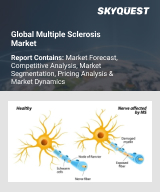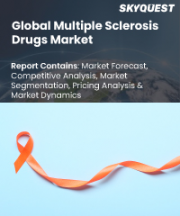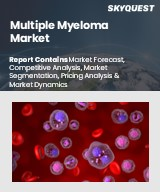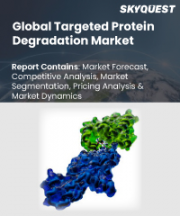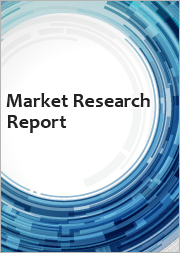
|
시장보고서
상품코드
1621833
면역조절제 시장 성장 기회, 성장 촉진요인, 산업 동향 분석 및 예측(2024-2032년)Immunomodulators Market Opportunity, Growth Drivers, Industry Trend Analysis, and Forecast 2024 - 2032 |
||||||
면역조절제 세계 시장은 2023년 2,177억 달러로 평가되었고, 2024-2032년간 연평균 6.7% 성장할 것으로 예상됩니다.
면역 조절제는 면역계 활동을 강화(면역 활성화제) 또는 억제(면역 억제제)하는 면역 조절제는 자가면역 질환, 암, 만성 감염 등의 치료에 필수적인 역할을 합니다. 자가면역질환 및 염증성 질환의 유병률 증가, 생명공학 및 제약 연구 발전, 면역조절요법에 대한 인식 증가 등 여러 요인이 시장 성장의 원동력이 되고 있습니다. 또한, 의료비 지출 증가와 효과적인 치료에 대한 수요 증가도 시장 확대에 기여하고 있습니다. 또한, 코로나 이후 합병증이 급증하면서 면역 조절제에 대한 수요가 더욱 가속화되고 있습니다. 이러한 치료제는 장기적인 호흡기 질환 및 기타 건강 문제를 관리하는 데 사용되기 때문입니다.
시장은 크게 면역억제제와 면역증강제의 두 가지 제품 유형으로 나뉘며, 2023년 1,365억 달러로 가장 큰 매출 점유율을 차지한 면역억제제는 예측 기간 동안 안정적인 성장을 보일 것으로 예상됩니다. 이러한 성장의 원동력은 전 세계 장기 이식률 증가에 따른 장기 이식 약품에 대한 수요 증가에 기인합니다. 면역억제제는 장기 거부반응을 예방하고 성공적인 이식을 위해 중요한 역할을 합니다.
면역억제제 시장을 용도별로 분류하면 암, 자가면역질환, 감염성 질환, 기타 용도가 있으며, 2023년 시장 규모는 854억 달러로 암 분야가 시장을 주도했습니다. 면역 조절제는 암세포를 표적으로 삼아 파괴하는 면역 체계의 능력을 강화하기 위해 암 치료에 점점 더 많이 사용되고 있습니다. 면역관문억제제, 사이토카인, 암 백신 등을 포함한 이러한 치료법은 종양과 더 효과적으로 싸우기 위해 면역 환경을 수정하는 능력을 가지고 있기 때문에 현대 종양학에서 매우 중요해지고 있습니다.
| 시장 범위 | |
|---|---|
| 시작 연도 | 2023년 |
| 예측 연도 | 2024년-2032년 |
| 시작 금액 | 2,177억 달러 |
| 예상 금액 | 3,887억 달러 |
| CAGR | 6.7% |
북미가 면역조절제 시장을 장악하고 있으며 2032년에는 1,783억 달러에 달할 것으로 예상됩니다. 미국은 2023년 912억 달러 시장을 창출할 것으로 예상되는데, 이는 주로 만성질환의 높은 유병률에 기인합니다. 여러 만성 질환을 앓고 있는 환자 수가 증가함에 따라 이 지역의 면역 조절 치료에 대한 수요가 크게 증가하여 시장 성장과 기술 혁신을 촉진하고 있습니다.
목차
제1장 조사 방법과 조사 범위
제2장 주요 요약
제3장 산업 인사이트
- 생태계 분석
- 산업에 대한 영향요인
- 성장 촉진요인
- 자가면역질환 갈지 않아 증가
- 바이오기술 진보
- 만성질환 관리 생물제제와 바이오시밀러 채택 확대
- 산업 잠재적 리스크와 과제
- 면역 조절 요법에 수반하는 고비용
- 부작용 가능성과 장기적인 안전성에 대한 우려
- 성장 촉진요인
- 성장 가능성 분석
- 규제 상황
- 기술적 전망
- 향후 시장 동향
- Porter's Five Forces 분석
- PESTEL 분석
제4장 경쟁 구도
- 서론
- 기업 점유율 분석
- 기업 매트릭스 분석
- 주요 시장 진출기업 경쟁 분석
- 경쟁 포지셔닝 매트릭스
- 전략 대시보드
제5장 시장 추정·예측 : 제품 유형별, 2021-2032년
- 주요 동향
- 면역억제제
- 면역 활력제
제6장 시장 추정·예측 : 용도별, 2021-2032년
- 주요 동향
- 암
- 자가면역질환
- 감염증
- 기타
제7장 시장 추정·예측 : 유통 채널별, 2021-2032년
- 주요 동향
- 병원 약국
- 소매 약국
- 온라인 약국
- 기타
제8장 시장 추정·예측 : 지역별, 2021-2032년
- 주요 동향
- 북미
- 미국
- 캐나다
- 유럽
- 독일
- 영국
- 프랑스
- 스페인
- 이탈리아
- 네덜란드
- 기타 유럽
- 아시아태평양
- 중국
- 일본
- 인도
- 호주
- 한국
- 기타 아시아태평양
- 라틴아메리카
- 브라질
- 멕시코
- 아르헨티나
- 기타 라틴아메리카
- 중동 및 아프리카
- 남아프리카공화국
- 사우디아라비아
- 아랍에미리트
- 기타 중동 및 아프리카
제9장 기업 개요
- AbbVie Inc.
- Amgen Inc.
- AstraZeneca PLC
- Biogen Inc.
- Bristol-Myers Squibb Company
- Eli Lilly and Company
- F. Hoffmann-La Roche AG
- Gilead Sciences, Inc.
- Johnson & Johnson
- Merck & Co., Inc.
- Novartis AG
- Pfizer Inc.
- Sanofi
- Teva Pharmaceutical Industries Limited
- UCB S.A.
The Global Immunomodulators Market was valued at USD 217.7 billion in 2023 and is projected to grow at a CAGR of 6.7% from 2024 to 2032. Immunomodulators, which can either enhance (immunostimulants) or suppress (immunosuppressants) immune system activity, are essential for treating conditions such as autoimmune diseases, cancer, and chronic infections. Several factors drive the market growth, including the increasing prevalence of autoimmune and inflammatory diseases, ongoing advancements in biotechnology and pharmaceutical research, and a growing awareness of immunomodulatory therapies. Rising healthcare expenditures and the growing need for effective treatments also contribute to the market expansion. Additionally, the surge in post-COVID complications has further accelerated the demand for immunomodulators, as these therapies are being used to manage long-term respiratory issues and other health challenges.
The market is divided into two major product types: immunosuppressants and immunostimulants. Immunosuppressants, which accounted for the largest revenue share of USD 136.5 billion in 2023, are projected to grow steadily over the forecast period. This growth is driven by an increased demand for organ transplant medications as the global rate of organ transplants continues to rise. Immunosuppressants play a vital role in preventing organ rejection and ensuring transplant success.
When segmented by application, the immunomodulators market includes oncology, autoimmune diseases, infectious diseases, and other applications. The oncology segment led the market in 2023, valued at USD 85.4 billion. Immunomodulators are increasingly being used in cancer treatment to help strengthen the immune system's ability to target and destroy cancer cells. These therapies, which include immune checkpoint inhibitors, cytokines, and cancer vaccines, are becoming crucial in modern oncology for their ability to modify the immune environment to fight tumors more effectively.
| Market Scope | |
|---|---|
| Start Year | 2023 |
| Forecast Year | 2024-2032 |
| Start Value | $217.7 Billion |
| Forecast Value | $388.7 Billion |
| CAGR | 6.7% |
North America is expected to dominate the immunomodulators market, with projections reaching USD 178.3 billion by 2032. The U.S. generated USD 91.2 billion in 2023, primarily due to the high prevalence of chronic diseases. The growing number of individuals living with multiple chronic conditions is significantly increasing the demand for immunomodulatory treatments in the region, driving market growth and innovation.
Table of Contents
Chapter 1 Methodology & Scope
- 1.1 Market scope & definitions
- 1.2 Research design
- 1.2.1 Research approach
- 1.2.2 Data collection methods
- 1.3 Base estimates & calculations
- 1.3.1 Base year calculation
- 1.3.2 Key trends for market estimation
- 1.4 Forecast model
- 1.5 Primary research and validation
- 1.5.1 Primary sources
- 1.5.2 Data mining sources
Chapter 2 Executive Summary
- 2.1 Industry 360°-degree synopsis
Chapter 3 Industry Insights
- 3.1 Industry ecosystem analysis
- 3.2 Industry impact forces
- 3.2.1 Growth drivers
- 3.2.1.1 Increasing prevalence of autoimmune diseases and cancer
- 3.2.1.2 Advancements in biotechnology
- 3.2.1.3 Growing adoption of biologics and biosimilars in chronic disease management
- 3.2.2 Industry pitfalls & challenges
- 3.2.2.1 High costs associated with immunomodulatory therapies
- 3.2.2.2 Potential side effects and long-term safety concerns
- 3.2.1 Growth drivers
- 3.3 Growth potential analysis
- 3.4 Regulatory landscape
- 3.5 Technological landscape
- 3.6 Future market trends
- 3.7 Porter's analysis
- 3.8 PESTEL analysis
Chapter 4 Competitive Landscape, 2023
- 4.1 Introduction
- 4.2 Company market share analysis
- 4.3 Company matrix analysis
- 4.4 Competitive analysis of major market players
- 4.5 Competitive positioning matrix
- 4.6 Strategy dashboard
Chapter 5 Market Estimates and Forecast, By Product Type, 2021 - 2032 ($ Mn)
- 5.1 Key trends
- 5.2 Immunosuppressants
- 5.3 Immunostimulants
Chapter 6 Market Estimates and Forecast, By Application, 2021 - 2032 ($ Mn)
- 6.1 Key trends
- 6.2 Oncology
- 6.3 Autoimmune diseases
- 6.4 Infectious diseases
- 6.5 Other applications
Chapter 7 Market Estimates and Forecast, By Distribution Channel, 2021 - 2032 ($ Mn)
- 7.1 Key trends
- 7.2 Hospital pharmacy
- 7.3 Retail pharmacy
- 7.4 Online pharmacy
- 7.5 Other end-users
Chapter 8 Market Estimates and Forecast, By Region, 2021 - 2032 ($ Mn)
- 8.1 Key trends
- 8.2 North America
- 8.2.1 U.S.
- 8.2.2 Canada
- 8.3 Europe
- 8.3.1 Germany
- 8.3.2 UK
- 8.3.3 France
- 8.3.4 Spain
- 8.3.5 Italy
- 8.3.6 Netherlands
- 8.3.7 Rest of Europe
- 8.4 Asia Pacific
- 8.4.1 China
- 8.4.2 Japan
- 8.4.3 India
- 8.4.4 Australia
- 8.4.5 South Korea
- 8.4.6 Rest of Asia Pacific
- 8.5 Latin America
- 8.5.1 Brazil
- 8.5.2 Mexico
- 8.5.3 Argentina
- 8.5.4 Rest of Latin America
- 8.6 Middle East and Africa
- 8.6.1 South Africa
- 8.6.2 Saudi Arabia
- 8.6.3 UAE
- 8.6.4 Rest of Middle East and Africa
Chapter 9 Company Profiles
- 9.1 AbbVie Inc.
- 9.2 Amgen Inc.
- 9.3 AstraZeneca PLC
- 9.4 Biogen Inc.
- 9.5 Bristol-Myers Squibb Company
- 9.6 Eli Lilly and Company
- 9.7 F. Hoffmann-La Roche AG
- 9.8 Gilead Sciences, Inc.
- 9.9 Johnson & Johnson
- 9.10 Merck & Co., Inc.
- 9.11 Novartis AG
- 9.12 Pfizer Inc.
- 9.13 Sanofi
- 9.14 Teva Pharmaceutical Industries Limited
- 9.15 UCB S.A.






